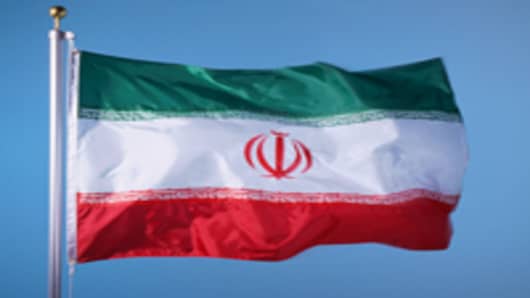Iran has indicated that its threat to cut oil supplies to European states in order to pre-empt a European Union oil embargo that comes into effect in July may be only a symbolic one.
Rostam Ghasemi, Iran’s oil minister, on Saturday said that any cut-off in Iranian oil supplies would target “hostile states” and should not harm European people in winter.
“We will certainly cut [oil exports] to some European states,” Mr. Ghasemi said, but gave no indication on timing and failed to name any of the “hostile” states to be targeted by punitive Iranian action.
By hostile European states, Iran usually refers to Britain, France, and Germany, three countries which buy only token amounts of Iranian oil and which led last month’s move to ban European Union member states from buying Iranian crude with the aim of putting pressure on Iran to halt its nuclear program.
The EU’s July deadline is intended to allow time for Greece, Spain, and Italy, Iran’s biggest European customers, to find supplies from other oil producers such as Saudi Arabia, Russia, and Iraq. Saudi Arabia, Iran’s main regional rival has already said it can meet any shortage in the oil market.
Mr. Ghasemi’s statement marks a significant retreat from earlier calls by Iran’s parliament to cut oil sales to all members of the 27-nation bloc.
The softening of Iran’s position, analysts suggest, can be explained by the fact that European states — with 600,000 barrels a day of oil imports from Iran — are virtually Tehran’s only customers who pay in U.S. dollars and euros without any problems.
Iran has faced growing difficulty in obtaining hard currency from its main Asian consumers, such as India and China, due to financial sanctions imposed by the U.S. and the EU over its nuclear program. It is reportedly being urged to receive Indian rupees and Chinese renminbi for its oil sales.
Mr. Ghasemi said Iran would not back down over its nuclear program even if the EU oil embargo went ahead, but did not anticipate any tensions in the Strait of Hormuz, a strategic waterway through which a third of the world’s seaborne oil trade passes. Iran had previously threatened to block the Strait of Hormuz if western powers targeted its oil exports
“Even if we do not sell one barrel of oil, we will not take one step back from our demands in the face of US [pressure],” he said, but hoped the EU would “revise” its decision.
Mr. Ghasemi said he had recently written to OPEC, the oil producers’ cartel, urging member states “to observe each other’s rights” and he hoped Saudi Arabia would respond positively to the demand.
It is not clear yet where Iran will be able to find customers to replace those in Europe, amid signs that some non-Western customers, such as Japan, South Korea, and Turkey, may also reduce their oil imports from Iran. Mr. Ghasemi is due to visit China, Iran’s largest oil buyer, in the next 10 days.
He told reporters that Iran would not give any discounts on its oil to China or any other country and had not done it so far. He said Iran had not yet resorted to barter deals in face of problems in financial transactions but “if one day it is deemed necessary, it will not be a complicated issue.”



